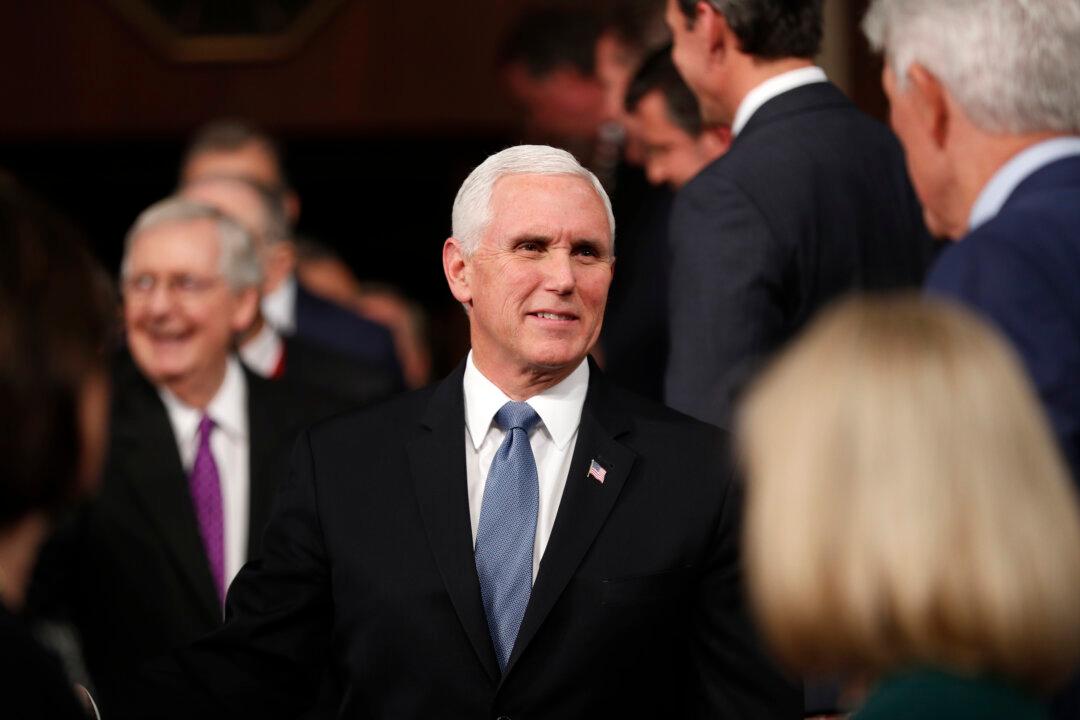WASHINGTON—U.S. Vice President Mike Pence on Feb. 7 declined to endorse a suggestion from U.S. Attorney General William Barr that the United States consider taking control of two major foreign rivals of China-based Huawei Technologies Co. Ltd.
Barr, a former general counsel at Verizon Communications Inc., said on Thursday the United States and its allies should consider taking a “controlling stake” in Finland’s Nokia and Sweden’s Ericsson to counter Huawei’s dominance in next-generation 5G wireless technology.





